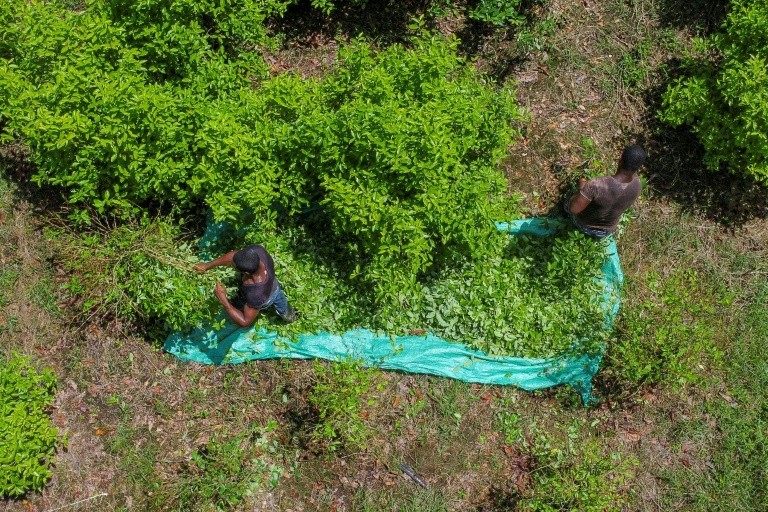
Colombia, the world's biggest cocaine exporter, set a new record last year for production of the drug and cultivation of the coca leaf it is made from, a United Nations report said Friday.
Coca leaf cultivation was 10 percent higher last year than in 2022, while cocaine production rose 53 percent from 1,738 tonnes to 2,600, according to the UN Office on Drugs and Crime (UNODC).
These were the highest numbers since the UN started monitoring in 2001. Most Colombian cocaine is destined for the United States and Europe.
Coca leaf production now spreads over 253,000 hectares (625,100 acres) in the country.
The trend has been upward since 2014 despite a US-based war on drugs worth millions of dollars.
The areas of Colombia with the biggest increase in 2023 were the Cauca and Narino departments, both bastions of dissidents groups of the FARC guerrilla army that disbanded in 2017.
Some 20 percent of the total area under coca cultivation in Colombia is on land belonging to communities of African descent, 10 percent on Indigenous reserves and 18 percent in protected forest areas.
The Colombian city of Cali will host the COP16 global summit on biodiversity for two weeks starting Monday.
Colombia's first-ever leftist President Gustavo Petro has accused US anti-drug policies of causing a "genocide" of Latin Americans for focusing on "repression" rather than prevention and public health.








